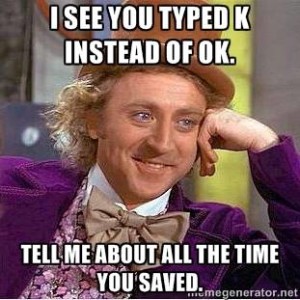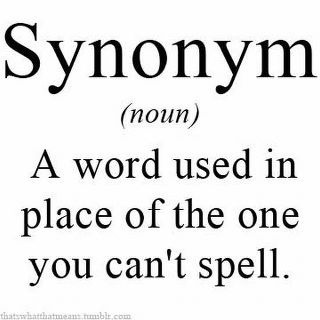Friday Fun
Suppose vs. Supposed
The first difference between suppose and supposed is that suppose is a verb and supposed is an adjective. Now we can begin to understand the differences in meanings. Here are three examples and an explanation of their meanings.
1) I suppose I should go.
2) I am supposed to go.
3) He is the supposed leader.
In the first example, suppose has a meaning similar to think. Suppose generally expresses a belief that lacks certainty or an opinion.
In the second example, supposed means required or obliged.
In the final example, supposed means either mistakenly believed or based on not very strong evidence.
Friday Fun
Friday Fun
How many of us are guilty of doing this?
Could of, Would of, Should of
“Could’ve,” “would’ve” and “should’ve” are legitimate verb contractions. When you speak these words, they sound like they end in “of,” but this is just plain wrong. Instead they are the contractions for “could have” “would have” and “should have.”
Friday Fun
This might just be my biggest fear when corresponding with potential clients.
Then vs. Than
Today’s Tuesday Tip comes straight from Grammar Girl herself at www.quickanddirtytips.com.
“Then” has an element of time. For example, it can mean “next” or “at that time.”
“Than” conveys a comparison.
Quick and Dirty Tip: Both “than” and “comparison” have the letter “a” in them, and “then” and “time” both have the letter “e.”
Check out the entire post, including some examples, by clicking here:
http://www.quickanddirtytips.com/education/grammar/then-versus-than
Friday Fun
This Friday Fun works well with our Tuesday Tip.
They’re vs. Their vs. There
Don’t confuse they’re, there, and their. A mistake involving these makes my head spin…and the heads of many others.
They’re
They’re is a shortened version of they are. (The apostrophe replaces the letter a.) Only use they’re if you can substitute it with they are.
Their
Their is used to show possession. It is just like my, your, his, her, its, and our. (These are called possessive adjectives.) Here is a little trick: use the word our instead of their. If the sentence still makes sense, then their is almost certainly correct. This trick works because our and their are both possessive adjectives used for plurals.
There
The word there is similar to the word here in that it represents a place. It has two main uses: (1) it is a specified place, and (2) it is an unspecified place. Also, the word there can be used to show that something exists.







